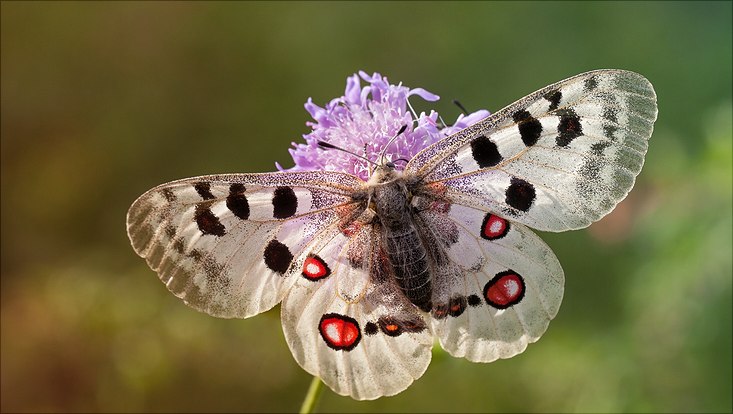Society Research
What are the major topics of your resesarch?
My research interests are very diverse and explore aspects of economic, occupational, and organizational sociology as well as social inequality. In recent years, I’ve mainly focused on three dimensions within these areas though. Firstly, on perceptions of inequality among different population groups and, most recently, on perceptions of crisis during the COVID-19 pandemic. Secondly, I have been looking at specific approaches to dealing with social issues—within my research on ethical banking, for instance. During a qualitative study, I examined how ethical banks such as GLS or Triodos Bank reconcile their ethical and economic interests and what problems arise from this.
The third dimension of my research addresses my interest in social change at institutions and organizations. I’m currently exploring the relationship between digitalization and sustainability. Specifically, I’m investigating how social and economic orders are changing in light of the imperatives of these two “megatrends.” We’re seeing that digital technologies help to address climate change—by means of energy-efficient cyber-physical systems, for instance—yet at the same time require tremendous amounts of energy. And this consumption of resources is diametrically opposed to the principle of sustainability. Societies must therefore find solutions to these contradictions without creating even greater social inequality. After all, there certainly won’t be a future without digitalization or the need for sustainable change.
How do you normally get to work?
I don’t work from home, as I like to get out in the morning and look forward to seeing a few colleagues at the office—while adhering to the pandemic regulations, of course. And my dog needs a walk anyway.
I usually ride my bike to work, but I have a puncture right now, so I either take the bus or just walk. My New Year’s resolution is to walk to work more often. I haven’t managed it very often yet, though—not least because my 13-year-old dog isn’t particularly enthusiastic about the idea.
What do you consider a successful day?
That’s a tough one! Well, as an early career researcher or postdoc, I consider my day a success if I finish writing an article and am happy with it, or if there’s some other success to report like a proposal being approved. In my private life, a successful day is characterized by a good balance between work and private life.
The weather is also an important factor for me: if the sun is shining, the day is pretty much a success without anything else having to happen.
How did you first become interested in the topic of sustainability?
For me personally, the subject of sustainability already played a role in my life at an early age, though I didn’t think of it as sustainability, as that word wasn’t yet widely used at the time.
I spent a lot of time at my grandparents’ small gardening business. As a child, I’d go on long hikes with my grandmother through the Eifel, the Hunsrück, and the vineyards along the River Mosel. She explained the plants we saw, including their botanical names. In some places, she’d also point out the plants, animals, or insects that used to flourish there during her childhood, but which had since disappeared or were now greatly depleted in number.
I can still remember one example very vividly: the very delicate Apollo butterfly. It’s white with black spots and has red dots on the lower wings with a white circle in the center and a black border. While this butterfly could be found in the Eifel in abundance when my gran was a child (especially on the steep slopes along the River Mosel), I only ever saw one, maybe two, and at most three at once during my entire childhood.
A second aspect that brought me to the subject of sustainability was my father, who’s a beekeeper. He has noticed something over the past 20 years that really got me thinking: 20 years ago, he didn’t need to feed his bees between spring and summer, as they could find enough flowers. Industrial agriculture means there are now hardly any meadows with flowers left. Either they don’t exist at all or they’re mown before they bloom. He calls this situation where the bees can no longer find any food and would starve if they weren’t fed the “green desert.”
Academically, I didn’t consider the subject of sustainability any further until I wrote my dissertation on ethical banks. Now I can explore this subject in great depth at the Humanities Center for Advanced Studies.
What will a happy childhood look like in 2050?
For me, a happy childhood in 2050 will look very much like the ideal of a happy childhood today: children should above all be able to grow up carefree. This depends on a great many factors, of course. Social inequality, for instance—both between population groups within our own society and between the Global South and Global North.
I also hope that the young generations will no longer be exposed to the effects of climate change in 2050. At least that’s what I’d like to see—whether that’s actually realistic is another question entirely!
What comes to mind when you hear the buzzword ‘zero-emission Hamburg’?
Electric mobility comes to mind, especially in terms of public transport. Given the sharp rise in the use of individual transport (whether electric or otherwise) due to the pandemic, I’d like to see public transport used more. I think that the subsidies for public transport and rail need to be increased to make it more affordable. Such a transformation of the modes of transport should then naturally also extend beyond the national borders.
When I think of electric mobility, I also automatically think of my second favorite means of transport, namely my bike. During the COVID-19 pandemic, there were quite a few pop-up bike lanes along the main roads in Hamburg. Now I can’t find any of them anymore. Not only trains and buses need to be made more attractive, but also cycling. This can primarily be achieved by improving road safety—and bike lanes could contribute greatly to this. It bothers me that pedestrians and cyclists are sometimes required to share spaces without any clear boundaries. This is overwhelming for everyone. So far, my impression is that Hamburg is pretty bike-unfriendly. I’ve seen cycling lanes that end abruptly or right in front of a tree. . . !
When did you stop thinking you were becoming more sustainable? Or do you still think so?
I’ve never thought of myself as sustainable, partly because I believe that the goal of being entirely sustainable is essentially impossible to achieve. The concept of sustainability is so very complex and encompasses so many dimensions that you can get a lot of things “wrong.” I don’t find it helpful to accuse others of not being “properly” sustainable or to point out inconsistencies in their sustainability behavior just to expose or shame them. After all, there’s no clear-cut definition of sustainability.
Different people, organizations, or even states interpret sustainability in very different ways, some of which contradict each other. This openness to interpretation and the fragility of the concept of sustainability is particularly evident right now in the debate about an EU taxonomy and the possible classification of natural gas and nuclear energy as sustainable. In principle, the taxonomy is intended to mobilize and guide private investors with the aim of financing the switch to renewable energy. This project faces the problem that the energy mix varies widely within Europe and each country has a different starting situation. And this is exactly what leads to different ideas of sustainability.
Given the differing assessments of what sustainability is, it’s difficult for individuals to consider themselves as living sustainably. But exploring key concepts and structures is what I enjoy the most about research.



